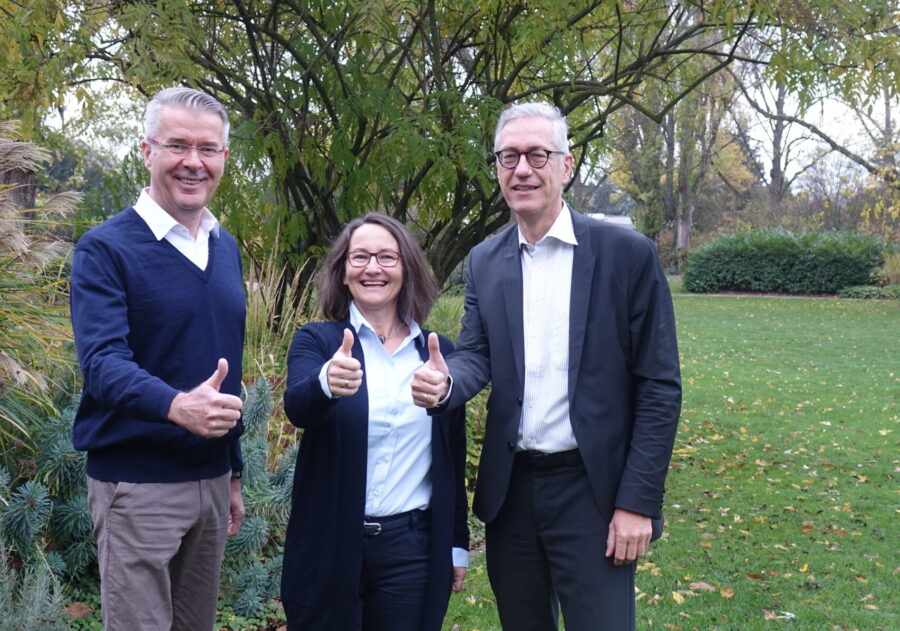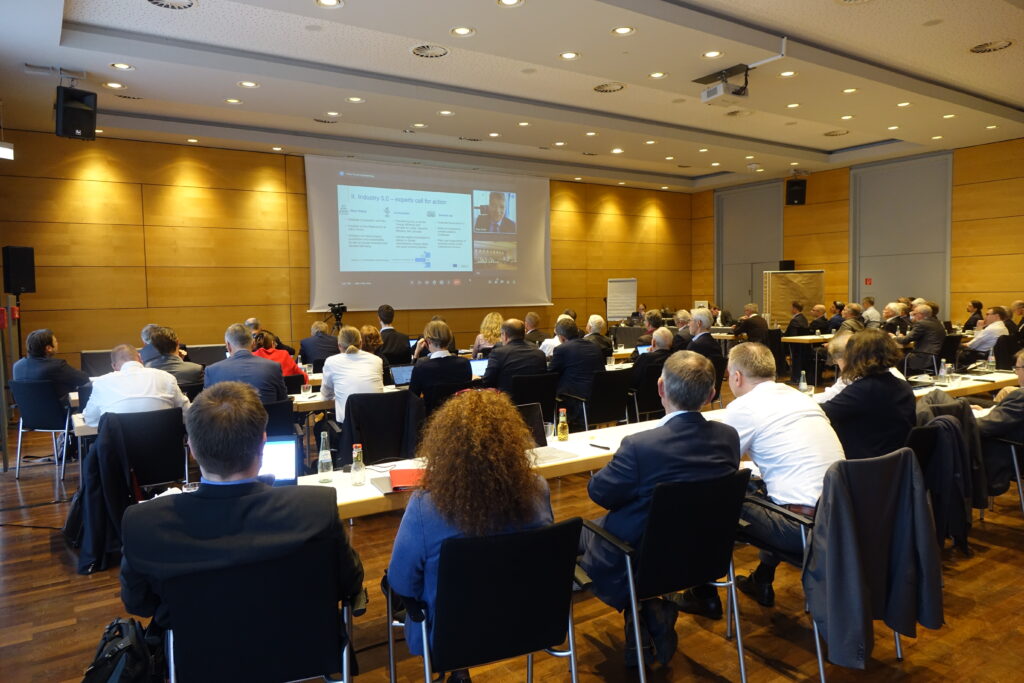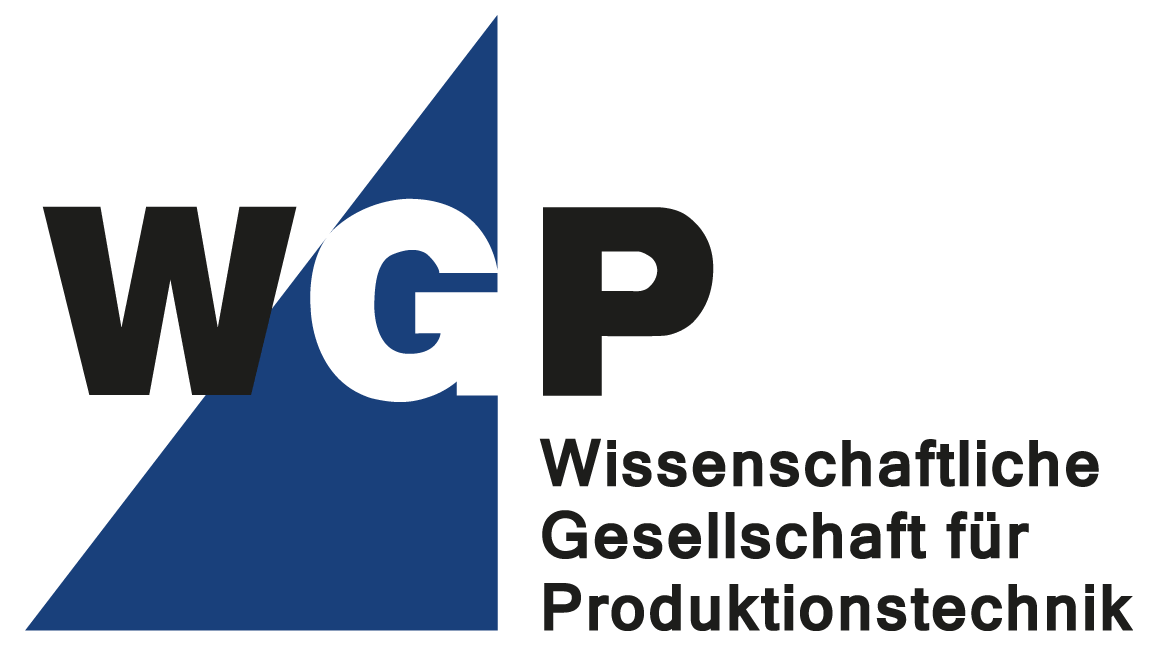
Kassel, November 14, 2022 – The leading scientists in production engineering and development as well as assembly and robotics have joined forces for the first time to discuss the impact of societal change on the products or production of tomorrow. “So far, environmental sustainability has been narrowed down quite one-sidedly to decarbonization instead of including the ‘planetary boundaries.’ But we have never faced such multi-dimensional challenges at the same time. They arise from the restriction of existing supply chains due to pandemics and geopolitical influences, the lack of availability of affordable energy, the demand for resource-efficient production and sustainable consumption, and last but not least, the decreasing number of qualified employees. In view of these developments, our society will have to change to a circular economy with a new globally conceived understanding of consumption,” predicts Prof. Jens P. Wulfsberg, president of the WGP (Scientific Society for Production Engineering) and head of the Manufacturing Technology Laboratory (LaFT) at Helmut Schmidt University in Hamburg. “For this, however, we urgently need to research new approaches that meet the new requirements over complete product life cycles. And we as production engineers can’t do that alone. That’s why we invited to the event together with WiGeP and WGMHI. Because without the interdisciplinary approach, we will not solve the challenges of our time.”
Rethinking productivity completely
Due to the tense situation, the term resilience and crisis-proof production has been doing the rounds for quite some time. EU policymakers have now coined the term “open strategic autonomy.” It circumscribes the goal of shaping the new system of global economic governance and development through mutually beneficial bilateral relations. At the same time, the Europeans want to protect themselves from “unfair and abusive practices.” This new strategic direction – also in view of the European Green Deal and national regulatory regimes – would fundamentally change the industry. “Circular economy and sharing economy are economic designs that today we still too often think from the existing product. Here, we need to break new ground from the very first draft,” cautions Prof. Kirsten Tracht, president of WGMHI (Wissenschaftliche Gesellschaft Montage Handhabung Industrierobotik) and head of bime (Institut für Strukturmechanik und Produktionsanlagen) at the University of Bremen. “That’s why we got together in Kassel to discuss and initiate holistic approaches for new products and production systems.”
For example, solutions must be found as early as the product design stage to implement more functionalities in products without using additional resources. Different designs for different customer requirements must already be considered during development. “We must not direct all our efforts only to the products and manufacturing systems that need to be redesigned,” explains Tracht. “We have to completely rethink products, production and productivity as a whole.”
Migratory bird efficiency as a target
Thus, in one of the workshops at the fall meeting, the idea of “train bird efficient” manufacturing came up. This is an energy efficiency system that spans the entire value chain. Migratory birds fly in formation for maximum resource conservation. Each bird takes up different positions during its journey across continents, which consume different amounts of energy – depending on individual capacities. “This allows the formation to achieve maximum speed, which can be maintained even if the formation changes,” Tracht explains. “Swarm versus individual efficiency is based on trust in the swarm. Analogously, we need to create quasi-biologically organized factories that consider themselves part of an overarching efficiency system and make their maximum capacities available to the ‘swarm,’ i.e., the value chain – adapted to the respective environmental conditions. In a figurative sense, this means that in strong winds, for example, a member of the swarm takes the lead, bringing with it the highest capacities in this case. This in turn also means that we need real-time decision-making processes so that we can adapt to external conditions as quickly as possible.”
The researchers will develop such a comprehensive efficiency system in a working group in the coming weeks.

Decentrally accessible ‘DNA’ for longer product lifetimes
In addition to limited resources, the climate crisis and environmental policy requirements make a rethink towards a sharing economy with longer-lasting products urgently necessary. Lifespan is limited by technical or functional wear and tear, such as when there is a technical defect or when new types of functions become available. However, it is often also an emotional decision to buy a new product because the old one no longer appeals.
If the service life of a product is to be extended, its ability to be repaired must be taken into account at the development stage. This requires technological solutions, such as new joining processes with better functionality for components so that they can be easily disassembled and reassembled. Ideally, information on the age, (dis)use and condition of the components must be available electronically for reuse or further use. “For this, we need a decentrally accessible ‘DNA’ of the product components to be able to identify whether individual components or modules are suitable for a second lifetime, or what needs to be done to make it possible. Modular concepts for products lend themselves to taking sustainable aspects into account. Modules could be identified that can be reused in new products, for example, after reconditioning. Battery modules are an example of this,” explains Prof. Dieter Krause, president of WiGeP (Scientific Society for Product Development) and head of PKT (Institute for Product Development and Design Technology) at Hamburg Technical University. When developing products and systems, updates regarding functionalities or technologies as well as software must also be considered: People throw away outdated goods, even if they are still fully functional. “Last but not least, we must work together to ensure that products remain usable for as long as possible or that used parts can be replaced more easily. A shift toward “pay per use” business models also significantly increases the use of products while consuming fewer resources. However, for these to take effect, we also need a cultural change in society,” says Krause.
Addressing the transformation of industrial societies
The product and production researchers are clear that their research only covers part of the challenges. Social and cultural issues must also be included: “For example, how do we ensure that emotional attachment to products does not decline steadily with age? We need a cultural change here. In Japan, for example, appreciation for a product repaired on private initiative is actually increasing,” reports Wulfsberg.
So there is still a lot to do, and time is pressing. The working groups formed in Kassel will therefore continue their work following the fall meeting. “We need to turn our urge to research into impulses for change and the transformation of our society as quickly as possible,” warns the WGP president, “because the multiple crises will change all our lives. We need answers now about how we want to live in the future – so that we still have as much influence on it as possible.”
Download:
Cover image: The president and presidents at the fall meeting of WGP, WiGeP and WGMHI in Kassel, November 9-11, 2022, (from left to right): Prof. Jens P. Wulfsberg, WGP; Prof. Kirsten Tracht, WGMHI; Prof. Dieter Krause, WiGeP; Source: WGP
Image 2: Fall meeting of WGP, WiGeP and WG MHI, Source: WGP
